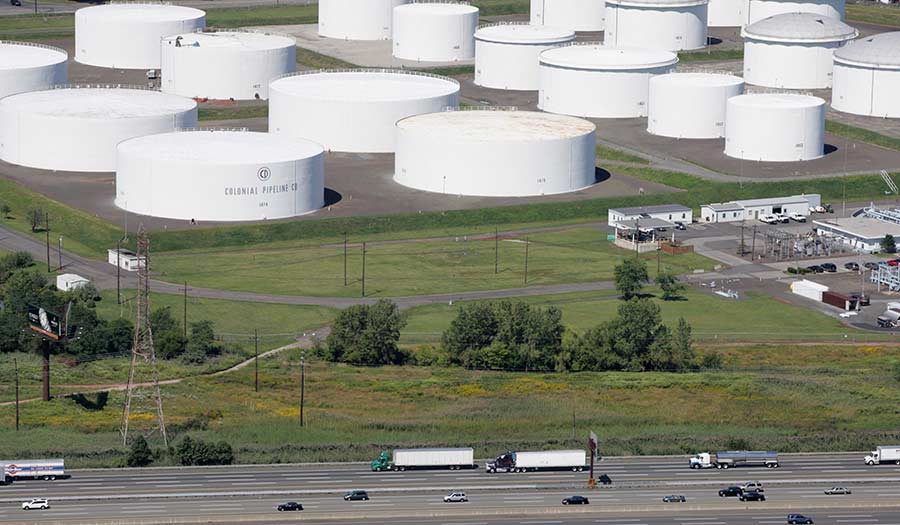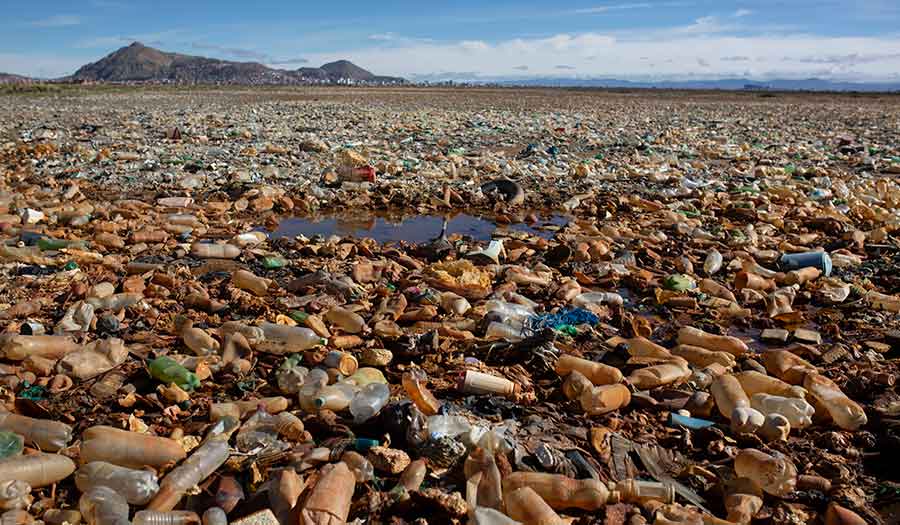 AP/Mark Lennihan
AP/Mark Lennihan
World News Desk
Learn the why behind the headlines.
Subscribe to the Real Truth for FREE news and analysis.
Subscribe NowNEW YORK (Reuters) – America’s biggest gasoline pipeline is unlikely to resume significant operations for several days due to a ransomware cyberattack that Washington on Monday blamed on a shadowy criminal network called DarkSide.
The attack on the Colonial Pipeline between Houston and New Jersey, which provides nearly half the fuel to the U.S. East Coast, is one of the most disruptive digital ransom schemes ever reported.
The privately owned company on Monday said it was working on restarting in phases with “the goal of substantially restoring operational service by the end of the week.”
The FBI attributed the cyberattack to DarkSide, a group cyber experts say may be based in Russia or Eastern Europe. Its ransomware targets computers that do not use keyboards in the languages of former Soviet republics, they said.
A statement in the group’s name said, “Our goal is to make money, and not creating problems for society.” Its statement did not mention Colonial Pipeline by name.
Ransomware is a type of malware designed to lock computers by encrypting data and demanding payment to regain access. It is unknown how much money the hackers are seeking, and Colonial has not commented on whether it would pay.
Colonial on Friday voluntarily shut its 5,500-mile pipeline network, which moves fuels including gasoline, diesel and jet fuel, to protect its systems. The closure triggered fears of retail gasoline price spikes, shortages and travel disruption.
The episode laid bare the vulnerabilities of energy infrastructure to hackers. It has also created concerns in energy markets ahead of the summer vacation season, when gasoline demand and airline travel tend to peak.
Pain at the Pump?
Fuel demand in the southeastern United States has already picked up as consumers fear shortages. Gas stations in states such as Georgia, North Carolina and Tennessee were seeing some abnormal buying, said Patrick De Haan, head of petroleum analysis at GasBuddy.
The American Automobile Association said the national gasoline price average climbed 6 cents on the week to $2.96 a gallon, the highest since May 2018.
In East Atlanta, Georgia, Marcus Blash, the owner of a small trucking company, worried when he heard the news of the pipeline shutting down. His company does not have any ability to store fuel on site to hedge against prices.
“We pay at the pump,” he said. “It hasn’t hit us yet, but this is going to hurt big time.”
If the disruption stretches on, fuel suppliers could ship by trucks and rail instead. The Department of Transportation announced emergency measures on Sunday, lifting driver restrictions on fuel haulers in 17 states affected by the shutdown.
U.S. fuel importers are also booking at least six tankers to ship gasoline from Europe to U.S. destinations following the attack.
Total SE reduced gasoline production on Monday at its 225,500 barrel-per-day Port Arthur, Texas, refinery because the pipeline shutdown left it without a way to ship the gas, sources said.
- Real Truth Magazine Articles
- WEATHER & ENVIRONMENT
 Water Crisis: What Happens When There’s Nothing Left to Drink?
Water Crisis: What Happens When There’s Nothing Left to Drink?
Other Related Items:
More on Related Topics:
- The UN Says More Than 5,600 People Were Killed in Haiti Last Year as Gangs Rampage
- Fentanyl Fuels Record Homeless Deaths in Oregon’s Multnomah County, Home to Portland
- As Donald Trump Threatens Mass Deportations, Central America Braces for an Influx of Migrants
- Suicides in the U.S. Military Increased in 2023, Continuing a Long-term Trend


